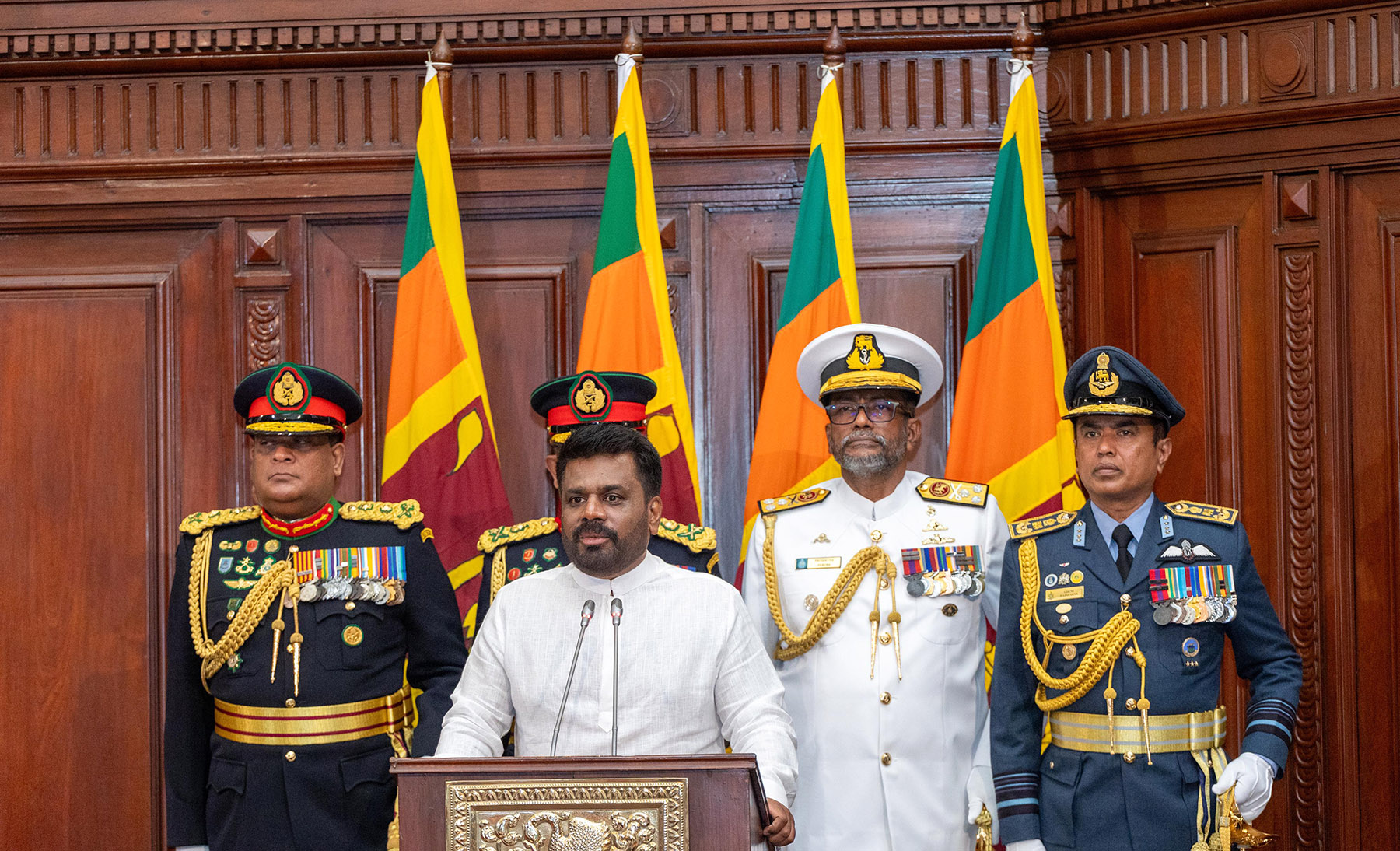New leader will also focus on reducing poverty, improving lives, expert says

The top priorities of Sri Lanka's new president will be to boost economic recovery, reduce poverty and improve the quality of life for citizens, an expert says, as the weekend's national election came two years after the country declared bankruptcy.
The Election Commission confirmed on Sunday that the left-leaning Anura Kumara Dissanayake, 55, was the winner of Saturday's presidential election.
"The millions of eyes filled with hope and expectation push us forward, and together, we stand ready to rewrite Sri Lankan history," Dissanayake wrote on X after the release of the results.
READ MORE: Dissanayake sworn in as new president of Sri Lanka
"This dream can only be realized with a fresh start. The unity of Sinhalese, Tamils, Muslims, and all Sri Lankans is the bedrock of this new beginning. The New Renaissance we seek will rise from this shared strength and vision."
Dissanayake was sworn in to office on Monday and vowed to restore public faith in politics, but said he had no magic solution to the hardships suffered following an economic crisis.
"I am not a conjurer, I am not a magician, I am a common citizen," he said after taking his oath.
"I have strengths and limitations, things I know and things I don't ...my responsibility is to be part of a collective effort to end this crisis."
In a special address, outgoing President Ranil Wickremesinghe said the people had made their decision and it must be respected.
Reflecting on his tenure, he said he followed the right path and guarded people from starvation and suffering amid the economic crisis.
"I hope that the new president will also follow the right path and put an end to the remaining issues that the people are facing," he added.
On Monday, Prime Minister Dinesh Gunawardena submitted his resignation, saying that with the election of Dissanayake as the ninth executive president of Sri Lanka, he is stepping down in accordance with the country's constitution.
Gunawardena sent his congratulations to Dissanayake on Sunday night.
Leaders from South Asia also extended their congratulations to the new president.
In their messages, Pakistan's President Asif Ali Zardari and Prime Minister Shehbaz Sharif expressed hopes for further strengthened bilateral relations under Dissanayake's leadership, Radio Pakistan reported.
Maldives President Mohamed Muizzu said on X: "As close neighbors, I am eager to work with you to further strengthen the historic friendship between the Maldives and Sri Lanka. Wishing you immense success in your new role."
India's Prime Minister Narendra Modi said he looks forward to working closely with Dissanayake to further enhance the multifaceted cooperation between their countries, the Press Trust of India reported.
A total of 38 candidates contested in Saturday's presidential election, which concluded peacefully the same day. More than 17 million registered voters, out of Sri Lanka's 22 million population, cast their ballots at more than 13,000 polling stations to choose a leader for the next five years.
Dissanayake's victory came more than two years after former president Gotabaya Rajapaksa resigned in July 2022 amid a severe economic crisis that sparked protests across the country.
This crisis, brought about by a confluence of factors, including the COVID-19 pandemic and geopolitical conflicts, resulted in shortages of essential goods such as fuel and food.
Following Rajapaksa's resignation, Wickremesinghe was appointed president during a parliamentary election. His term is set to expire on Nov 17. According to the Election Commission, the law mandates that a presidential election be held no less than one month and no more than two months before this date.
Sri Lanka's economy has recently started to recover, with the World Bank projecting a moderate growth of 2.2 percent this year in its biannual update in April. Inflation has decreased significantly, and tourism — one of the country's top sources of foreign revenue — has also rebounded, with more than 1.3 million foreign tourists visiting by mid-August, the Tourism Development Authority said.
ALSO READ: Sri Lanka's presidential election enters second round of counting
Despite the positive outlook, the World Bank update said the country still faces challenges, including elevated poverty levels, income inequality and labor market issues. Poverty rates have continued to rise for the fourth consecutive year, with an estimated 25.9 percent of Sri Lankans living below the poverty line last year, it said.
Lawrence Loh, director of the Centre for Governance and Sustainability at the National University of Singapore's Business School, told China Daily that the new president's "utmost priority" should be sustained economic recovery, especially in light of the serious economic policy mismanagement of recent years.
Sound economic governance must be at the heart of the country's new leadership, he said.
"Sri Lanka is part of Asia, and it will be through this region that the country can achieve its next phase of renewal and growth."
Agencies and Xinhua contributed to this story.


